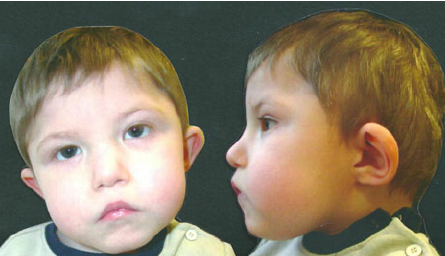In a groundbreaking development, a new PET imaging tracer has been successfully created to detect a frequently occurring cancer gene mutation that serves as a crucial molecular marker for targeted cancer therapies. This breakthrough enables early identification of the mutation, allowing physicians to customize treatment plans and achieve optimal results for patients. The study revealing this advance was recently published in the Journal of Nuclear Medicine.
Patients with KRAS mutations typically have a poor response to standard therapies. Consequently, leading cancer research centers including the National Comprehensive Cancer Network recommend determining the mutation status in cancer patients to determine the most effective treatment.
Presently, KRAS mutation screening is conducted through biopsies combined with gene sequencing. However, these biopsies often come with complications and are limited by the quality of the tissue sample. This highlights the urgent need for accurate and noninvasive methods of evaluating the KRAS mutation status, as stated by Dr. Jing Wang, a nuclear medicine physician at Xijing Hospital of Fourth Military Medical University in Xi’an, China.
In the first-ever study involving humans, researchers aimed to develop a KRAS-targeted radiotracer and study its potential for targeting non-small cell lung cancer (NSCLC) and colorectal cancer.
A PET tracer named 18F-PFPMD, designed to target the oncoprotein of KRASG12C, was created based on a recently FDA-approved KRASG12C inhibitor. The specificity of its targeting and its imaging capabilities were evaluated through both in vitro and in vivo studies. Additionally, further assessment was conducted on healthy volunteers, NSCLC patients, and colorectal cancer patients.
The results of the study demonstrated that 18F-PFPMD could be obtained with high radiochemical yield, radiochemical purity, and stability. It was proven to selectively bind to the KRASG12C protein in preclinical studies. Furthermore, the tracer was found to be safe for human use, rapidly clearing from the gallbladder and intestines. In NSCLC and colorectal cancer patients, tumors with the KRASG12C mutation exhibited significantly higher accumulation of 18F-PFPMD compared to tumors without the mutation.
Dr. Wang describes this research as unveiling 18F-PFPMD as a promising molecular imaging tool with significant clinical relevance. In the future, the tracer could be utilized to screen for the KRASG12C mutation status, aiding in patient selection for KRASG12C targeted therapy. Additionally, it could be used to monitor therapeutic response and detect drug resistance in cancer patients.
This new PET tracer sets the stage for a more precise and effective approach to cancer diagnosis and therapy. By identifying the KRAS mutation early on, physicians can tailor treatment plans to address the specific needs of each patient, ultimately improving outcomes and advancing personalized medicine in the field of oncology.
Note:
1. Source: Coherent Market Insights, Public sources, Desk research
2. We have leveraged AI tools to mine information and compile it




